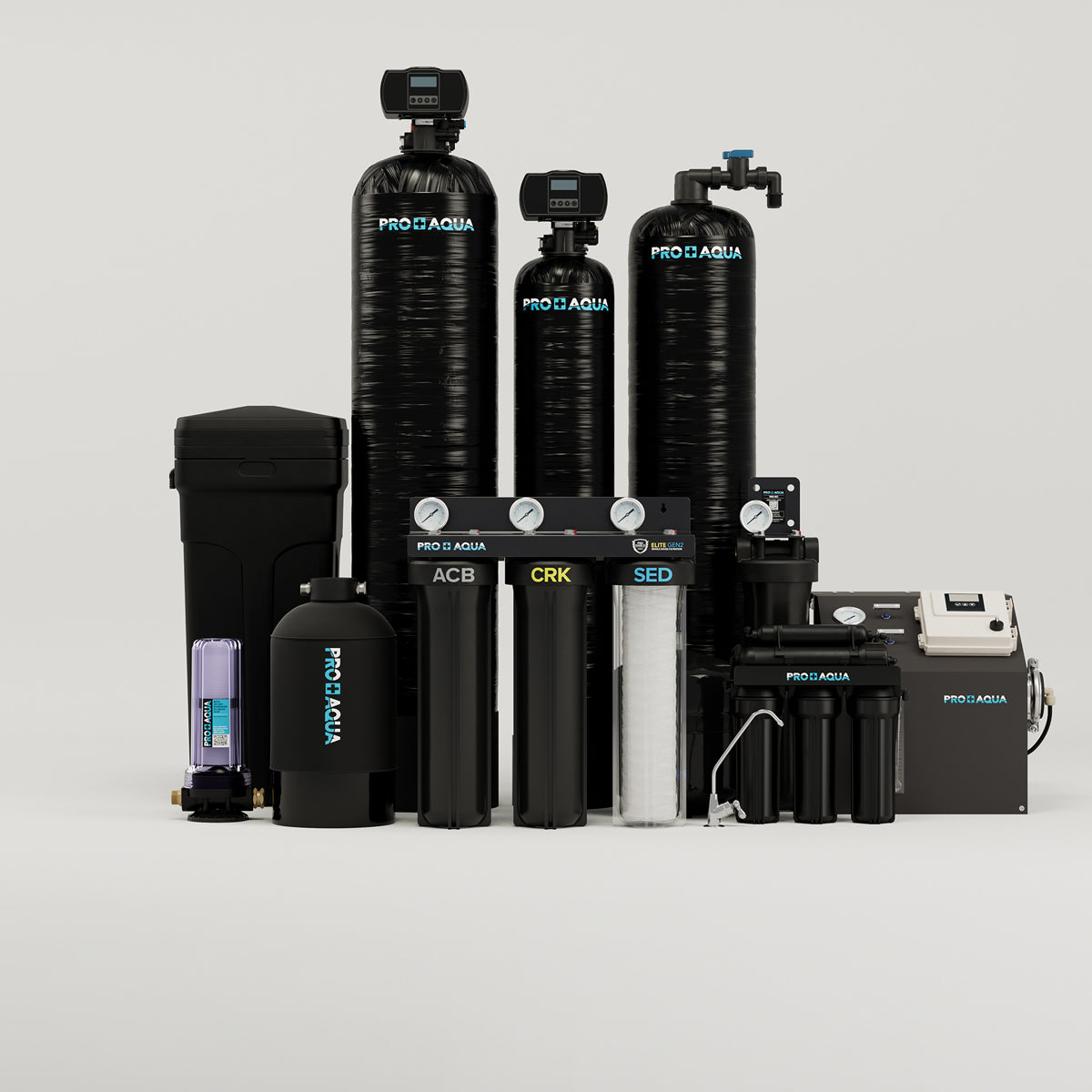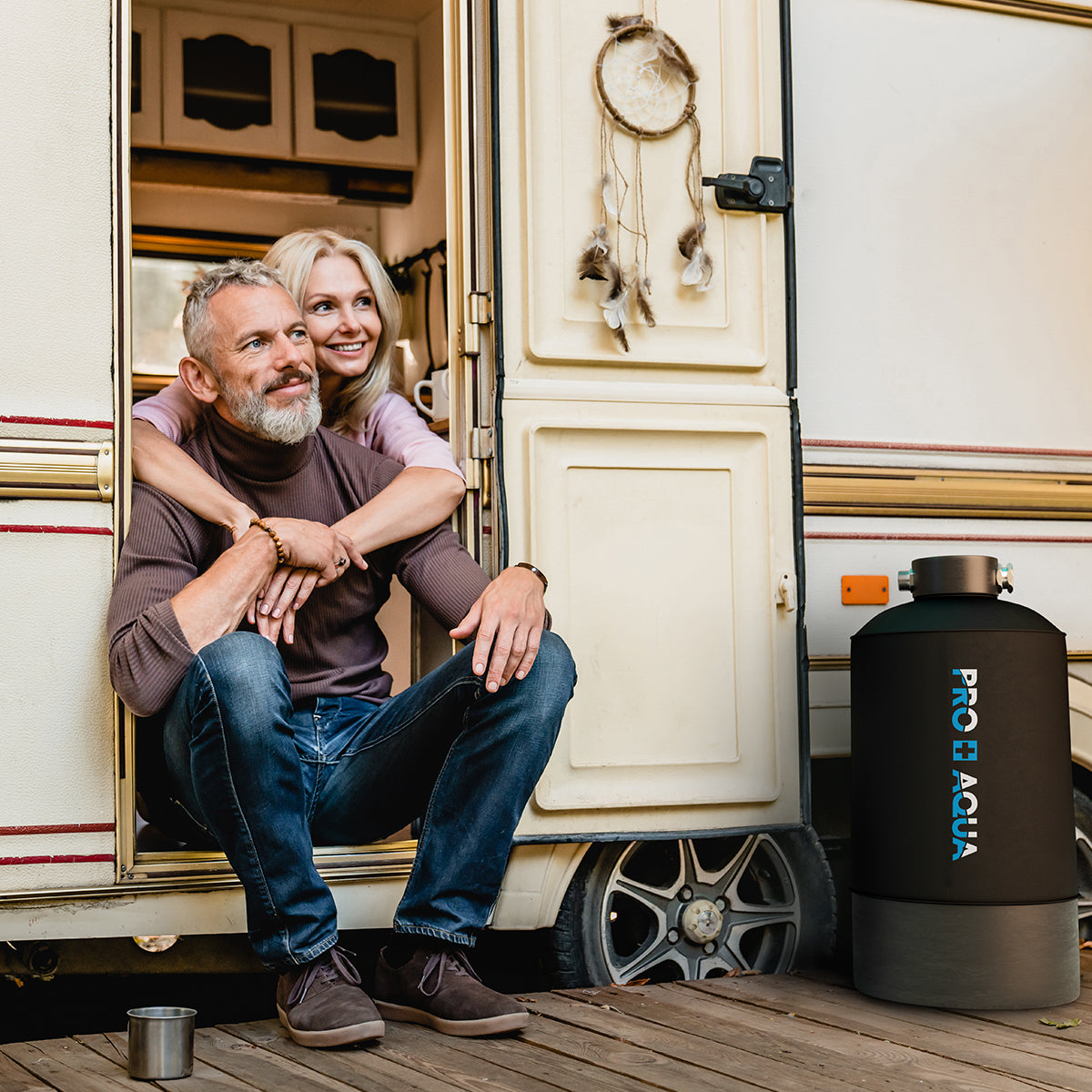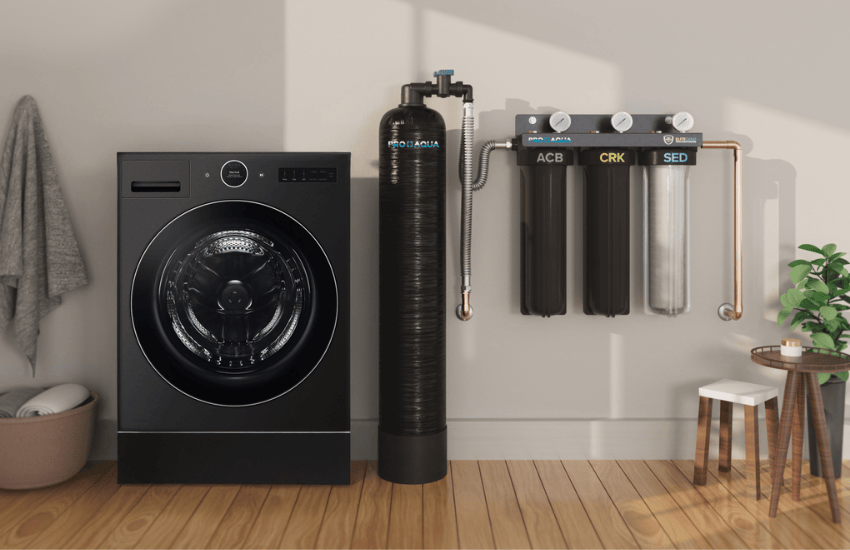TL;DR – Key Takeaways
- Softened water is generally safe to drink in most areas.
- Sodium content increases slightly during softening—but not to harmful levels for most people.
- People on low-sodium diets or with certain health conditions should consult a doctor.
- The long-term side effects of drinking softened water are minimal for healthy individuals.
If you’re planning to install a water softener in your home, you might be wondering if soft water is safe to drink. This article breaks down the difference between hard water and soft water, the potential side effects of drinking softened water, and if it's really okay to pour a glass of water straight from the softened tap.
Is Softened Water Safe To Drink?
Yes, softened water is generally safe to drink in most households.
For the vast majority of people, drinking water from a water softener poses no health risks. However, because sodium is used in the ion-exchange process to remove hard minerals, softened water contains slightly more sodium than unsoftened water. This increase is usually minimal and well below the limits set by the U.S. Environmental Protection Agency (EPA) and World Health Organization (WHO).
Still, if you're on a low-sodium diet or have kidney or cardiovascular issues, it's a good idea to speak with your healthcare provider or consider a dual-tank system with a separate drinking water filter.

What Makes Soft Water Soft?
Soft water means water that has had most of its hardness minerals removed—mainly calcium and magnesium—which cause scale buildup in pipes, water heaters, and appliances.
A water softener works through a process called ion exchange, where hardness minerals in the water are replaced with sodium (or sometimes potassium) ions. This leaves the water “soft,” which:
- Lathers better with soap
- Reduces scaling and buildup in plumbing
- Extends the life of appliances like dishwashers and water heaters
- Feels smoother on skin and hair
Softened water may taste slightly different, especially if you're used to hard water, but it's still considered drinkable in most cases.
The Long Term Side Effects of Drinking Softened Water
For healthy adults, the long-term side effects are negligible. However, a few key considerations:
1. Sodium Intake
The added sodium in softened water is typically about 12.5 mg per 8 oz glass when softening moderately hard water. That’s a fraction of your daily recommended sodium intake (2,300 mg/day per the FDA). Still, for those on sodium-restricted diets, even small increases can matter.
2. Infants and Formula
It’s not advised to use softened water to mix baby formula, as infants are more sensitive to sodium and their developing kidneys may struggle with higher salt content.
3. Mineral Reduction
Softening removes beneficial minerals like calcium and magnesium. While water is not your primary source of these minerals (you get far more from food), some health experts recommend supplementing if your diet lacks them.
4. Taste Preferences
Some people prefer the taste of hard water vs soft water, especially for cooking or drinking. This is more about personal preference than health.
Conclusion: For the general population, drinking softened water is safe long-term. If you have dietary concerns, consider installing a reverse osmosis system at your kitchen sink for drinking and cooking.

Is Tap Water Hard or Soft Water?
That depends on your location. Most municipal water in the U.S. is naturally hard, meaning it contains high levels of dissolved calcium and magnesium.
- Hard water causes scale buildup, dry skin, soap scum, and cloudy glassware.
- Soft water feels slicker, lathers easily, and extends appliance life.
You can find out if your tap water is hard or soft by:
- Checking your water supplier’s annual water quality report
- Using a home water test kit
- Calling your local utility
Areas with well water or groundwater sources often have higher hardness levels and benefit significantly from a whole-house softener.
Are Water Softeners Safe?
Yes—water softeners are safe and widely used in homes across the country to improve water quality, extend the life of appliances, and reduce plumbing issues.
That said, like any system, quality matters.
If you're considering a home softener, we highly recommend the PRO+AQUA PRO-S-80E Whole House Water Softener. It’s engineered for high-efficiency performance and is ideal for households with heavy water usage or high hardness levels.
Why choose PRO+AQUA’s PRO-S-80E?
- High capacity: Designed for large households or extreme hard water
- Smart digital valve: For optimized regeneration cycles and salt savings
- Built to last: Corrosion-resistant tanks and premium-grade resin
- Simple installation: DIY-friendly with professional-grade components
- Trusted brand: PRO+AQUA specializes in clean water systems for homes with well or municipal water
Whether you're managing hard water or seeking a long-term health-conscious solution, this unit delivers reliability and peace of mind.
FAQs: Softened Water & Drinking Safety
Q: Should you drink softened water?
Yes, unless you're on a sodium-restricted diet or mixing infant formula. For extra caution, use a filtered line for drinking water.
Q: Is soft water better than hard water for your body?
For bathing and cleaning, absolutely. For drinking, soft water may lack some minerals, but it’s not harmful to your health.
Q: Is it OK to drink water from a water softener?
Yes, it’s safe for most people. Those with specific health conditions may want to consult a doctor.
Q: Is soft water bad for you?
No. There is no credible evidence showing that soft water is bad for healthy individuals.
Final Thoughts
Softened water is not just good for your plumbing—it's generally safe for drinking, too. While the sodium content slightly increases, it's minimal and within safe consumption limits for most. If you're still concerned, adding a drinking water filter like reverse osmosis to your setup gives you the best of both worlds: soft water for home use and ultra-pure water for drinking.
And if you’re looking for a system that delivers efficient performance, longevity, and peace of mind, the PRO+AQUA PRO-S-80E is a top-tier choice to make your home's water cleaner, softer, and healthier.








Leave a comment
This site is protected by hCaptcha and the hCaptcha Privacy Policy and Terms of Service apply.